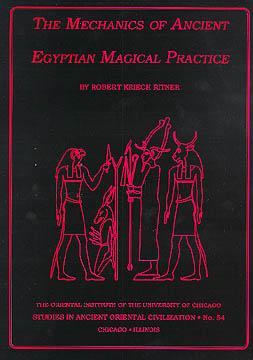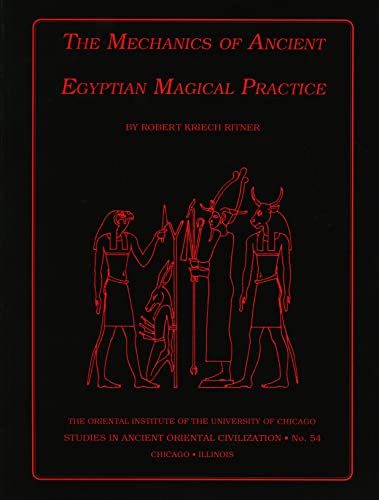- Joined
- Jul 3, 2023
- Messages
- 3,026
- Reaction score
- 12,222
- Awards
- 15
Verrry scholarly free e-book from the University of Chicago:
To date, no comprehensive treatment of Egyptian magic has focused on the practice of the magician. Both general studies and textual publications have emphasized instead the religious elements in the contents of recited spells, while the accompanying instructions, with their vignettes and lists of materials, instruments, and ritual actions, remained uninvestigated. This study represents the first critical examination of such “magical techniques,” revealing their widespread appearance and pivotal significance for all Egyptian “religious” practices from the earliest periods through the Coptic era, influencing as well the Greco-Egyptian magical papyri. The author also discusses the “pagan-Egyptian” influence on Old and New Testament practices and in the lives of the Coptic Desert Fathers. The third edition is a reprinting of the second, which included minor corrections from the original edition.
This volume is a significant revisionist approach to ancient Egyptian magic. As a result of a methodical analysis of both the textual and archaeological records, Ritner concludes that the boundaries between ancient Egyptian magic, religion, and medicine were not as strictly observed as modern commentators believe. Furthermore, he categorically denies the frequent attempts of moderns to define ancient Egyptian magic as a phenomenon dealing with the supernatural, practiced primarily for nefarious purposes sub rosa by individuals outside of the religious mainstream. Ritner’s engaging prose style and felicitous exegesis of even the most arcane material make for easy reading. But more important still, the content of the work ensures that it will become a vital reference tool for all engaged in any aspect of ancient Egyptian religion.
To date, no comprehensive treatment of Egyptian magic has focused on the practice of the magician. Both general studies and textual publications have emphasized instead the religious elements in the contents of recited spells, while the accompanying instructions, with their vignettes and lists of materials, instruments, and ritual actions, remained uninvestigated. This study represents the first critical examination of such “magical techniques,” revealing their widespread appearance and pivotal significance for all Egyptian “religious” practices from the earliest periods through the Coptic era, influencing as well the Greco-Egyptian magical papyri. The author also discusses the “pagan-Egyptian” influence on Old and New Testament practices and in the lives of the Coptic Desert Fathers. The third edition is a reprinting of the second, which included minor corrections from the original edition.
This volume is a significant revisionist approach to ancient Egyptian magic. As a result of a methodical analysis of both the textual and archaeological records, Ritner concludes that the boundaries between ancient Egyptian magic, religion, and medicine were not as strictly observed as modern commentators believe. Furthermore, he categorically denies the frequent attempts of moderns to define ancient Egyptian magic as a phenomenon dealing with the supernatural, practiced primarily for nefarious purposes sub rosa by individuals outside of the religious mainstream. Ritner’s engaging prose style and felicitous exegesis of even the most arcane material make for easy reading. But more important still, the content of the work ensures that it will become a vital reference tool for all engaged in any aspect of ancient Egyptian religion.
Last edited:


